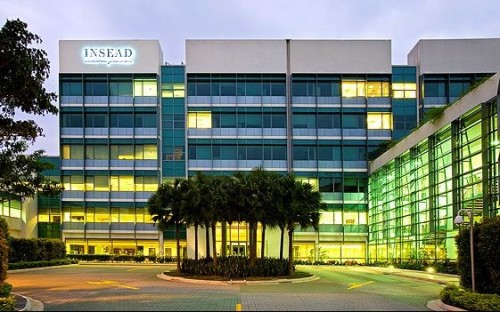Going to business school is an excellent path to personal and professional development, regardless of whether you choose to pursue an Executive MBA or a standard MBA.
Both options offer valuable networking and educational opportunities, hands-on global learning experiences, and a respected degree with a significant return on investment.
However, there are still some significant differences between the programs that will affect which one would be the best fit for you. Here are three questions you should ask yourself when trying to decide between an MBA and an EMBA:
Where am I at in my career?
The difference between an EMBA and an MBA essentially comes down to where you are in your career. Executive MBA programs are typically designed to suit the needs of more experienced mid- to senior-level professionals. Too little experience may make it challenging to be admitted to an EMBA program; too much may make it difficult to get into an MBA program.
For example, at Columbia Business School the MBA class of 2015 had an average age of 28, with 5 years of work experience; for Columbia's EMBA program of the same year, the average age was 33 with 12 years of work experience.
INSEAD states explicitly in the FAQs for its MBA program that it is “aimed at those who are at an early stage in their career”, and suggests that applicants with more than ten years of experience consider their Global Executive MBA program instead.
Do I want to continue working during school?
Because of the seniority level of their applicants, most EMBA programs are scheduled for weekends or alternating weeks, so that they are able to continue working while employed. In fact, most top EMBA programs require company sponsorship as a part of the admissions process:
Wharton School of Business requires non-financial sponsorship (allowance for time off) for all EMBA applicants, and full financial sponsorship for participants in the Fellows program who have eight or fewer years of work experience.
The Kellogg-HKUST Executive MBA program requires that students have company sponsorship and support, and also asks candidates to demonstrate that their company sponsor “considers they are outstanding and have potential within the organization”.
Typical full-time MBA programs, on the other hand, are set up in such a way as to make holding down a job – even part-time – incredibly challenging. Even aside from all of the time spent in class and on course work, having a job would mean taking time away from networking, interning, and other non-class enrichment opportunities.
As a result, most students at top MBA programs leave their jobs when they start school, and take advantage of internships, career services, and networking to land a job after graduating. Part-time MBA program options are great options for those who have limited work experience and wish to continue working while pursuing their degree.
Why do I want to go to business school?
If you're still on the fence about whether you want to go for an MBA or an EMBA, spending some time thinking about why you want to go to business school, and what you hope to get out of it, may clear some things up for you.
If you're looking to develop your foundational business skills, significantly expand your network, or switch to a new and mostly unrelated industry, getting an MBA may make more sense. If you're at the point in your career where you would like a broader perspective, but are concerned you're too busy to go back to school or to give up two years in the workforce, an Executive MBA program may be just the right fit.
Tahir Awan, a January 2016 graduate of NYU Stern's School of Business, decided to pursue an EMBA because he “wanted to be able to sit down with CIOs, CFOs, and CTOs” and understand their perspectives as he advanced his career and developed his own business.
Regardless of your specific circumstances, what will matter most to admissions committees is that you've put real thought into why the specific program you are applying to is the best fit for you, and what you will bring to their school.
Chioma Isiadinso is an education entrepreneur and co-founder/CEO of EXPARTUS, the first MBA admissions consulting firm to integrate personal branding into every aspect of the MBA admissions process.
She's also a former Harvard Business School admissions officer and the author of the Best Business Schools' Admissions Secrets.
Chioma publishes on the topics of personal branding, leadership development and business school admissions for college students, young professionals, entrepreneurs and executives.
RECAPTHA :
2c
e3
1c
f4








